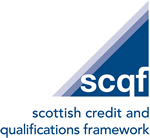Work & learn with a work based course
Vocational Qualifications (VQs) are work-related and designed to be carried out in the workplace or through work-based activities. Qualifications are competence based, there are No Exams, No Essays, No Classes.
An assessor visits the candidate at work, provides the course content and supports all learning.
Your evidence, including the assessor’s notes of any observations, is put together into a portfolio, which sets out sufficient, valid, current and authentic evidence to satisfy the requirements of the qualification.
Why should I do a Vocational Qualification?
- They are the only qualifications that relate absolutely to the requirements of the specific job that someone is doing.
- They give individuals credit for the skills and knowledge they already have and allow them to up-skill to complete any gaps.
- They provide people with the opportunity to measure what they do against a nationally agreed standard and to gain a qualification at the same time.
- If the candidate already has all or most of the skills and knowledge required they can be assessed and gain a qualification without having to do further training.
- Being assessed against clear assessment standards gives a candidate valuable feedback and often raises the standards of their work. Most of us do a better job when we know exactly what is expected of us.
- They are accessible to anyone who can do the job – candidates do not require other skills that have nothing to do with the job (like being able to remember lots of facts or having to write essays when suffering from exam nerves).
- Vocational Qualification – A group of units that prove competence in all aspects of a vocation, e.g. manager, teacher, administrator etc.
- Unit – A statement of workplace activity or competence in an occupational area.
- Elements – These state activities that the individual should be able to carry out to demonstrate their competence for any particular unit.
- Performance Criteria – These are the statements against which the assessor judges the evidence to determine how well the candidate can perform the activity described in the element of competence. Performance criteria specify the qualities required of the resulting work outcomes.
- Range Statements – Within each element of competence this statement places a boundary around the competence. It can define the size and complexity of an activity or task to be carried out.
- Evidence Specification – Describes the types of evidence that prove the competence has been achieved. It consists of performance evidence to demonstrate what a person can do and the knowledge evidence that is required to support the competence. They are not part of the standard but provide guidance for the assessment.
What standards do these qualifications meet?
The Scottish Credit and Qualifications Framework (SCQF) is a way of describing and comparing qualifications in terms of how complex they are and how much effort is involved in achieving them. It does this by describing qualifications in terms of level and credit.
All the qualifications awarded by the Scottish Qualifications Authority (SQA) are now covered by the framework, as are all university degrees.

